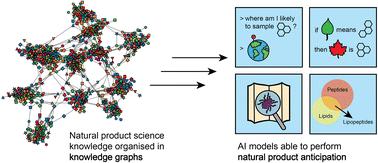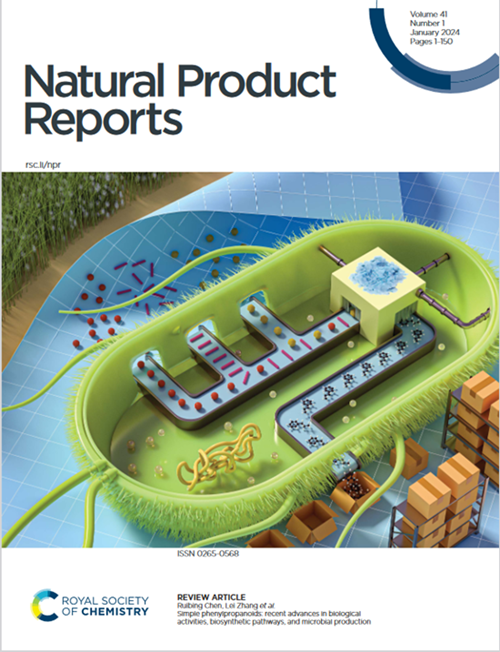用人工智能增强自然产品科学:利用多模态数据和知识图谱。
IF 10.2
1区 化学
Q1 BIOCHEMISTRY & MOLECULAR BIOLOGY
引用次数: 0
摘要
人工智能(AI)正在加速我们开展科学研究的方式,从利用 AlphaFold 折叠蛋白质、利用大型语言模型总结文献研究结果,到利用专业软件注释基因组和优先筛选新生成的分子,不一而足。然而,迄今为止,人工智能在天然产品研究中模拟人类认知的应用及其后续影响还很有限。影响有限的一个原因是,现有的天然产品数据是多模态的、不平衡的、非标准化的,而且分散在许多数据存储库中。这使得现有的深度学习架构在使用自然产品数据时面临挑战,因为现有的深度学习架构使用的是相当标准化的数据,通常是非关系型数据。这也阻碍了模型学习自然产品科学中的总体模式。在本视点中,我们将应对这一挑战,并通过将我们的集体知识整理成知识图谱,支持旨在实现天然产品数据民主化的现行举措。通过这样做,我们相信将有机会利用这样的知识图谱来开发能够真正模仿天然产品科学家决策的人工智能模型。本文章由计算机程序翻译,如有差异,请以英文原文为准。

Empowering natural product science with AI: leveraging multimodal data and knowledge graphs†
Artificial intelligence (AI) is accelerating how we conduct science, from folding proteins with AlphaFold and summarizing literature findings with large language models, to annotating genomes and prioritizing newly generated molecules for screening using specialized software. However, the application of AI to emulate human cognition in natural product research and its subsequent impact has so far been limited. One reason for this limited impact is that available natural product data is multimodal, unbalanced, unstandardized, and scattered across many data repositories. This makes natural product data challenging to use with existing deep learning architectures that consume fairly standardized, often non-relational, data. It also prevents models from learning overarching patterns in natural product science. In this Viewpoint, we address this challenge and support ongoing initiatives aimed at democratizing natural product data by collating our collective knowledge into a knowledge graph. By doing so, we believe there will be an opportunity to use such a knowledge graph to develop AI models that can truly mimic natural product scientists' decision-making.
求助全文
通过发布文献求助,成功后即可免费获取论文全文。
去求助
来源期刊

Natural Product Reports
化学-生化与分子生物学
CiteScore
21.20
自引率
3.40%
发文量
127
审稿时长
1.7 months
期刊介绍:
Natural Product Reports (NPR) serves as a pivotal critical review journal propelling advancements in all facets of natural products research, encompassing isolation, structural and stereochemical determination, biosynthesis, biological activity, and synthesis.
With a broad scope, NPR extends its influence into the wider bioinorganic, bioorganic, and chemical biology communities. Covering areas such as enzymology, nucleic acids, genetics, chemical ecology, carbohydrates, primary and secondary metabolism, and analytical techniques, the journal provides insightful articles focusing on key developments shaping the field, rather than offering exhaustive overviews of all results.
NPR encourages authors to infuse their perspectives on developments, trends, and future directions, fostering a dynamic exchange of ideas within the natural products research community.
 求助内容:
求助内容: 应助结果提醒方式:
应助结果提醒方式:


